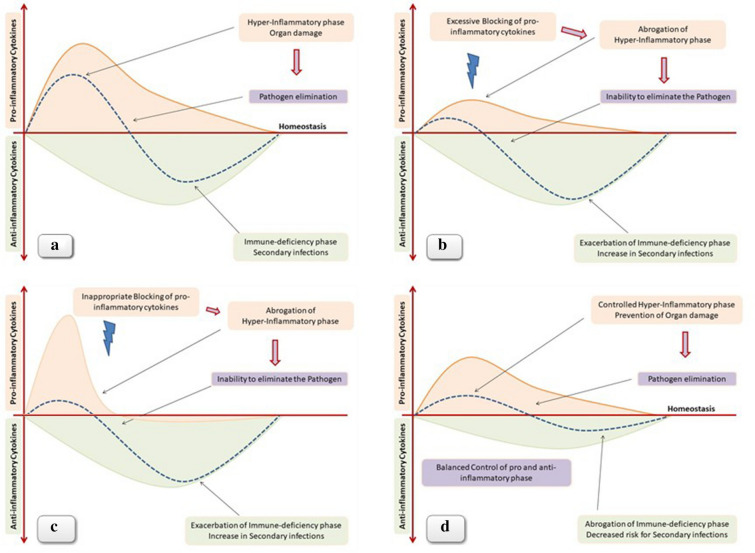Fig. 1.
a) Although oversimplified, the septic process is characterized by an initial hyper-inflammatory phase followed by a late phase of immnue-deficiency. Blocking of pro-inflammatory cytokines has been proposed as a therapeutic modality with the aim to prevent the cytokine strom and the resulting organ damage. However, either excessive b) or inappropriate and at the wrong time c) pro-inflammatory blockade may result in exacerbation of immune-deficiency, inability to eliminate the pathogen, and increased risk for secondary infections. d) Any immune-modulating therapeutic approach in sepsis should be applied in combination with an effective anti-pathogen agent. Future studies exploring immune-modulation in sepsis should take into account dynamic parameters such as the intensity, the duration, as well as the proper timing of immune intervention. Theoretically, an ideal approach should focus on a balanced control of both hyper-inflammation and immune-suppression with the aim to prevent organ dysfunction but without compromising the ability of the immune system to eliminate the pathogen

